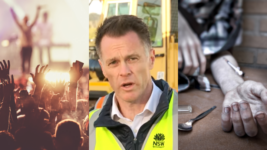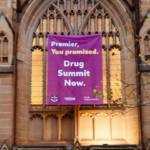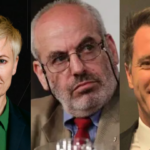NSW Labor Is Continuing to Refuse Major Drug Law Reform Despite Election Promises

According to veteran NSW drug law reformist Dr Alex Wodak, it’s “an open secret that most of the NSW cabinet now support major drug law reform”.
This suggests that the recent 2024 NSW Drug Summit was “designed to not recommend change”, as Wodak put it in Pearls and Irritations, not because the party in power, NSW Labor, is against reform, but rather it’s due to a few senior ministers having an aversion to changing the law for fear of an adverse reaction at the ballot, as well as perhaps any personal moral afront they might harbour.
Since the drug summit, the NSW government has sanctioned the trialling of pill testing. But as NSW Greens drug law reform spokesperson Cate Faehrmann repeatedly pointed out in the lead up to the summit, pill testing, or drug checking, was the one item on the agenda that could have been actioned prior to the meeting, so the intervention was in place for the summer music festival season.
Labor promised to hold the summit prior to election. But premier Chris Minns began stalling on it when speaking to the Daily Telegraph in August 2023. And as its first sessions were about to be held in November, misgivings arose about how genuine the government was due to a lack of transparency around the summit’s organisation and the disjointed manner in which it was being run.
Dr Wodak, however, continues to have faith in the impact of a report and recommendations to be produced in early 2025 by the “magnificent cochairs of the 2024 Drug Summit” former NSW Labor deputy premier Carmel Tebutt and former NSW Liberal opposition leader John Brogden.
Indeed, on publication of the report, the government will again be confronted with official recommendations regarding the drug law reforms that have long been raised by experts, and the democratically elected MPs will then have the choice to consider their recommendations or simply ignore the document for so long that the constituency gives up on any real reform.
Drug decriminalisation is key
Drug decriminalisation is the key reform on the NSW drug law reform agenda. Decriminalisation involves the removal of criminal penalties against personal drug possession, which means that law enforcement would no longer arrest and charge people for small amounts of drugs for personal use. Instead, a warning or fine can be issued or a drug counselling session be required.
This reform, along with a significant investment in rehabilitation services, significantly improved the illicit drug use situation in Portugal, where at the turn of the century, 1 percent of the population was heroin dependent.
In 2001, the European nation decriminalised all illegal drugs, which saw drug-related death rates and HIV infections plummet. And today, those found with a personal amount of drugs on them go before a dissuasion panel – a doctor, a lawyer and a social worker – that considers whether to impose a prescribed drug treatment, a minor fine or no punishment at all, and most receive the latter.
A similar system was rolled out in the ACT on 28 October 2023. This results in those found in possession receiving a caution or a small $100 fine or the option of sitting a counselling session instead of paying the infringement notice. And this robust reform of ACT drugs laws has not resulted in any adverse reports.
However, the Murdoch press raised the ACT’s pending implementation with the NSW premier in late August 2023, which resulted Minns stating he had “no mandate” to progress decriminalisation, even though the Coalition-commissioned inquiry into the drug ice in early 2020 and the 2019 NSW coronial inquiry into NSW music festivals deaths both prioritised it as key to cleaning up the state.
The reasons why decriminalisation is the preferred model are somewhat counterintuitive after a century of prohibition and half a century of enhanced criminalisation.
But the chief reasons are that most people who use drugs suffer little harm, and the most they experience are usually the result of an arrest, while the criminal nature of drug use prevents those with problems seeking help.
Stalling on sensible policy
Other key recommendations that might be in the Tebutt and Brogden report include the removal of NSW police use of drug dogs and strip searches at music festivals, which are known to cause some festivalgoers to partake in dangerous drug consumption practices to avoid detention, such as swallowing all drugs at once in a panic, which have led to identified overdoses in the past.
Another long-term drug law reform that much of the community agrees upon is around cannabis use. And the NSW parliamentary inquiry into the regulation of the plant released its interim report in October, which recommends taking immediate steps towards decriminalisation, which would ultimately lead to a legal and regulated cannabis market.
In terms of the ice inquiry it commissioned, the Berejiklian government shot down several of its key recommendations initially, prior to sitting on the report for another two years. The refused recommendations included ruling out pill testing, an increase in safe injecting rooms, removal of drug detection dogs and the trialling of needle and syringe programs in prisons.
Then NSW health minister Brad Hazzard said in a statement that his government would consider the rest of the recommendations made in the report, which included drug decriminalisation, and respond to it by the end of 2020.
However, the Coalition then dragged its feet on the matter, and when the Perrottet government finally came to the table with a response in September 2022, decriminalisation was nowhere on the page, but instead the government had committed to a $500 million investment in drug services both in the community and in prison settings.
So, whilst the alcohol and other drug (AOD) sector was much disappointed with the denial of any key drug law reforms, the heftiest investment in drug services in this state’s history made it very difficult to be too openly critical of the outcome, as rehabilitation services were sorely needed.
Watered down decriminalisation
In late 2020, when the government was initially meant to respond to the ice inquiry, then NSW attorney general Mark Speakman floated a reform proposal that skirted around decriminalisation.
Speakman, the current opposition leader, suggested depenalisation, which would mean that those found in possession of a personal amount of illegal drugs would receive an initial warning, then second and third incidents within a 12 month period would warrant a small fine and on a fourth instance, arrest would apply.
The now leader of the NSW Liberals then came to the table with a more stringent depenalisation proposal in March 2022, which consisted of those being found with a small amount of an illegal drug then having a $400 on-the-spot fine imposed, of which payment could be avoided by attending a counselling session, prior to an arrest third time around. However, the Coalition too rejected this.
The Minns government then rolled out the Early Drug Diversion Initiative (EDDI) on 29 February 2024, which comprises of Speakman’s second recommendation. And Faehrmann has checked in on the success of this initiative twice since roll out, only to find it’s an abject failure.
Figures the NSW Greens MLC obtained in September revealed that from February until 12 August last year, 6,332 drug possession arrests had occurred, while officers had only decided to exercise their discretion to fine 436 people in possession of a personal amount, via the EDDI, and of them, only 46 people chose to undertake the one-hour-long drug counselling session over the phone.
Votes more valued than lives
The Tebutt and Brogden report will likely still recommend drug decriminalisation regardless of the government’s refusal to consider what the experts all understand to be the way forward, as despite the disjointed manner in which the summit was managed, participants from throughout the state did partake in the forum, and they continued to put the evidence on the table at its various sessions.
So, five years on and the government will likely again be put in what it considers to be an inconvenient position, as expert opinion places genuine drug law reforms on the table, and those in power who still believe resisting such reforms to be politically advantageous, will likely again attempt to shoot them down.







